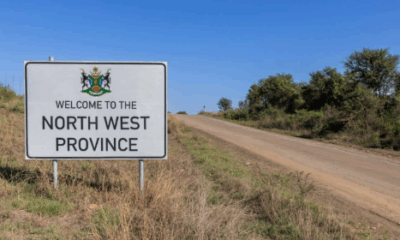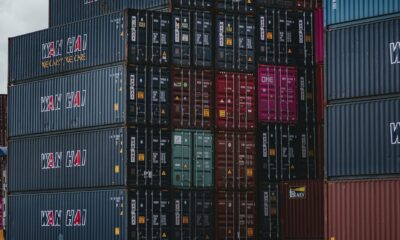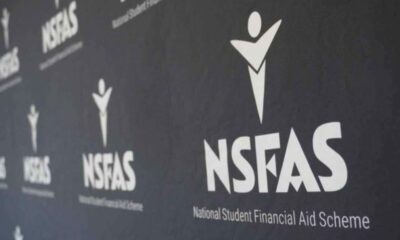News
Calls Grow to Ban Gambling for Grant and NSFAS Recipients in South Africa

Betting on Survival: Why South Africa Is Debating a Gambling Ban for Grant and NSFAS Recipients
With unemployment and online betting both at record highs, a new push is underway to stop social grant and student aid money from disappearing into gambling apps.
South Africa’s love affair with online betting has taken a darker turn. As the country faces stubbornly high unemployment and rising household debt, a growing number of industry leaders are warning that taxpayer-funded grants and student allowances are being funnelled into online gambling platforms and they want it to stop.
The South African Bookmakers’ Association (SABA), representing the country’s betting operators, has confirmed that it is in talks with the SA Responsible Gambling Foundation (SARGF) to introduce safeguards that would block Sassa grant recipients and NSFAS beneficiaries from gambling online.
Sean Coleman, SABA’s CEO, says the industry doesn’t want to be complicit in allowing vulnerable citizens to gamble with state support meant for survival and education.
“We don’t want to onboard customers who are Sassa grant recipients or NSFAS beneficiaries,” Coleman said. “That money is destined for other things and should achieve those end goals in terms of what government wants to do.”
A R1.5 Trillion Industry With a Growing Social Cost
Online gambling has exploded in South Africa in the past decade, powered by cheap data, smartphone access, and aggressive marketing.
Industry data shows that gambling turnover hit R1.5 trillion in the past financial year, including recycled funds, meaning money wagered, won back, and bet again.
But behind the numbers is a troubling picture. According to M&G Investments, the typical South African bettor is aged 26 to 35, often unemployed or earning between R5,000 and R15,000 a month, a group that faces an unemployment rate north of 40%.
“At current run rates, we estimate that South Africans will soon lose more than R50 billion a year to online betting platforms,” the firm noted, warning that many families are diverting funds from food, rent, and electricity to chase small wins online.
The National Responsible Gambling Programme has reported a 55% surge in people seeking help for gambling addiction, jumping from 2,662 in 2023/24 to 4,166 in 2024/25.
Legal, Illegal, and Everything In Between
The problem isn’t just legal gambling it’s the shadow economy of illegal betting websites.
A recent SABA study found that 62% of South Africa’s online gambling activity happens on unlicensed offshore platforms hosted in places like Malta, Curaçao, and Gibraltar.
“These offshore operators issue pseudo-licences with minimal oversight,” SABA said. “It creates a regulatory nightmare and makes it impossible to protect vulnerable players.”
Retail CEOs from Pick n Pay to The Foschini Group have also raised red flags about gambling’s growing footprint, saying the addiction is eating into household spending and worsening consumer debt.
Privacy, Policy, and the Popia Problem
Coleman acknowledged that using Sassa and NSFAS databases to restrict betting could raise data privacy concerns under South Africa’s Protection of Personal Information Act (POPIA).
“These are issues that need to be worked out,” he said, “but they’re not insurmountable. If we’re serious about these guardrails, it might have to become a condition of receiving the grant.”
The Department of Social Development and the Department of Trade, Industry and Competition are expected to weigh in on the discussions in the coming months.
Politics and Public Reaction
The political momentum is also shifting. Opposition party Rise Mzansi has taken the lead on the issue, calling for tougher regulation and a review of how gambling is advertised in South Africa.
Party MP Makashule Gana recently met with Betway CEO Laurence Michel, saying the talks were “productive” but warning that inaction could lead to “undesirable outcomes.”
“If the gambling industry doesn’t work with legislators and commit to reform, but sits on the sidelines, the outcome will be undesirable,” Gana said.
On social media, the debate is just as heated. Many South Africans have expressed support for stricter controls, pointing to viral TikTok videos of students betting away their NSFAS allowances. Others argue that banning grant recipients from gambling would amount to “economic policing of the poor”, raising ethical questions about autonomy and financial freedom.
South Africa’s gambling dilemma sits at the intersection of poverty, technology, and desperation. With unemployment hovering above 32% and the cost of living climbing, many young people see betting apps as their only shot at financial relief, even if the odds are stacked against them.
The proposed ban may not be the silver bullet policymakers hope for, but it has reopened a critical conversation about how to balance personal choice with social responsibility.
As Coleman puts it: “It’s not about punishing people for wanting to play, it’s about making sure government aid achieves its purpose, not ending up in a betting slip.”
South Africa’s betting industry is facing its biggest moral reckoning yet. The push to block Sassa and NSFAS beneficiaries from gambling marks a rare moment of alignment between policymakers, activists, and the industry itself, all asking the same question: When survival money turns into betting money, who is really winning?
{Source: Business Day}
Follow Joburg ETC on Facebook, Twitter , TikTok and Instagram
For more News in Johannesburg, visit joburgetc.com



























